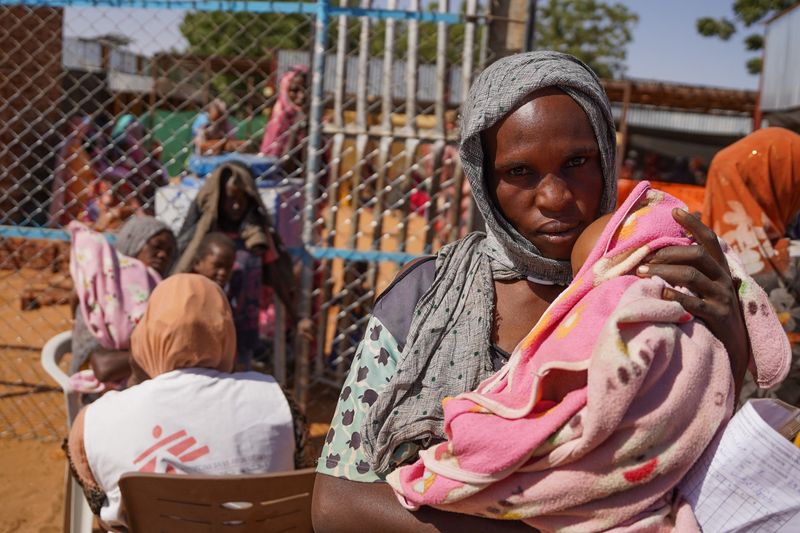Oxfam urges G7 to tap fraction of military spend for global hunger, debt

(Reuters) – Charity Oxfam urged wealthy nations to boost spending on ending hunger ahead of a Group of Seven (G7) annual summit set to kick off in Italy on Thursday, saying that just 3% of G7 military spending could help solve the global food and debt crisis.
The G7 – comprising the United States, Japan, Canada, Germany, France, Italy and Britain – is set to meet in Italy this week where leaders will discuss issues such as climate change, migration and heavy debt loads in developing countries.
Calculating that eradicating global hunger would require $31.7 billion annually and that the G7’s share of debt relief for the poorest countries would land at a further $4 billion, Oxfam said these together accounted for just 2.9% of the $1.2 trillion estimated spent by the G7 on the military last year.
“Governments are finding their pockets run deep to fund war today, but when it comes to stopping starvation they are suddenly broke,” Oxfam International’s inequality policy chief, Max Lawson, said in a statement.
Some 167 million people worldwide are suffering crisis-level hunger or worse, according to the IPC, a worldwide benchmark for world hunger, which has warned that lack of funds is preventing it from meeting growing demands and will force it to reduce the scope of its work.
Oxfam called on the G7 to halt arms exports that may be used in war crimes, boost taxes for billionaires, provide debt relief to poor countries to free up budgets for development, and fulfill outstanding aid and climate pledges.

It calculated that the seven countries owed some $15 trillion to states in the so-called Global South in outstanding aid commitments and unfulfilled pledges for climate financing, including the “loss and damage” fund.
“Families are struggling to get food on the table, our tax systems are making the rich richer, and the solution is glaringly obvious,” Lawson said. “We’re talking about a small commitment with the potential for huge impact.”



